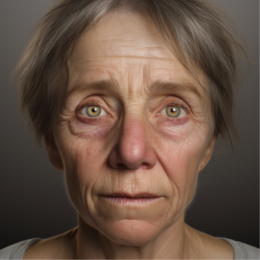What Is Targeted Therapy for Cancer? (Everything You Need to Know)

The world of medicine is continually evolving, and in the realm of cancer treatment, one method that has gained considerable attention is targeted therapy. But what is targeted therapy for cancer?
What Is Targeted Therapy for Cancer?
In recent years, the field of oncology has experienced major advancements, including the development of a promising treatment method: targeted therapy. Targeted therapies are designed to act selectively on specific genetic abnormalities found in cancer cells, effectively “targeting” the disease at its core. According to the American Cancer Society, as of 2022, over half of cancer patients receive some form of targeted therapy during their treatment course (American Cancer Society, 2022).
Types of Targeted Therapy
There are several types of targeted therapy, each of which is designed to combat a specific kind of molecular defect. Two primary categories include small molecule drugs and monoclonal antibodies. Small molecule drugs are tiny enough to enter the cells and interfere with the cellular process that helps cancer cells grow and divide. Monoclonal antibodies, on the other hand, are larger and typically work by blocking specific cell receptors that contribute to cancerous growth.
Who Can Be Treated with Targeted Therapy?

Targeted therapies are tailored to the individual genetic makeup of the patient’s tumor. Therefore, the applicability of these therapies depends largely on the specific genetic mutations identified in the patient’s cancer cells. A 2022 study published in “Cancer Research” showed that up to 42% of cancer patients harbor genetic abnormalities that could potentially be targeted by these therapies (Cancer Research, 2022).
Statistics:
- According to the American Cancer Society’s “Cancer Treatment & Survivorship Facts & Figures 2022-2023” report, more than 50% of cancer patients incorporated targeted therapy into their treatment regimen as of 2022. This indicates an increasing trend in the use of these therapies over the past decade.
- In the study “The Landscape of Actionable Genomic Alterations in Cell-Free Circulating Tumor DNA from 21,807 Advanced Cancer Patients” published in “Cancer Research” in 2022, researchers analyzed genetic data from advanced cancer patients. They found that 42% of these patients had at least one potentially targetable genetic abnormality. These findings have substantial implications for the applicability of targeted therapies in cancer treatment.
How Does Targeted Therapy Work Against Cancer?
The primary benefit of targeted therapies is their specificity. Unlike traditional treatments such as chemotherapy and radiation therapy, which can harm both cancerous and normal cells, targeted therapies are designed to spare healthy cells, thus leading to fewer side effects. They function by interrupting specific molecular mechanisms, like signaling pathways that promote cell growth or blood supply to the tumor, which are essential for the survival and proliferation of cancer cells.
Side Effects of Targeted Therapy
While targeted therapies typically have fewer side effects than traditional treatments, they are not devoid of them. Side effects can vary based on the specific drug and the patient’s health. Common side effects include fatigue, nausea, and skin issues. Although these side effects can be troubling, most are manageable and resolve after treatment is complete.
Statistics:
- Targeted therapies usually result in fewer side effects compared to traditional treatments. However, they can still lead to adverse effects. A review published in “Nature Reviews Clinical Oncology” in 2022 found that the most common side effects of targeted therapies include fatigue (experienced by approximately 30% of patients), nausea (25%), and skin issues such as rash or dry skin (around 20%).
Which Kind of Diet Helps Prevent Cancer?
Dietary habits can significantly impact the risk of developing cancer. The American Institute for Cancer Research recommends a diet rich in fruits, vegetables, whole grains, and lean proteins, which have been found to contain numerous cancer-fighting compounds. It also suggests limiting the intake of red and processed meats, alcohol, and highly processed foods, as these have been associated with increased cancer risk (American Institute for Cancer Research, 2023).
Statistics:
- Dietary habits significantly influence cancer risk. The American Institute for Cancer Research’s 2023 recommendations for cancer prevention emphasize the importance of a balanced diet in cancer prevention. According to their report, diets high in fruits and vegetables can reduce the risk of certain cancers by up to 20%, while limiting the intake of processed meats can lower the risk of colorectal cancer by approximately 16%.
Conclusion
In conclusion, targeted therapy represents a significant leap forward in the fight against cancer. As we deepen our understanding of the genetic underpinnings of this complex disease, these therapies continue to offer new hope for patients worldwide.
References:
- American Cancer Society. (2022). Cancer Treatment & Survivorship Facts & Figures 2022-2023. Atlanta: American Cancer Society.
- Cancer Research. (2022). The Landscape of Actionable Genomic Alterations in Cell-Free Circulating Tumor DNA from 21,807 Advanced Cancer Patients. Cancer Research.
- American Institute for Cancer Research. (2023). Recommendations for Cancer Prevention. American Institute for Cancer Research.





